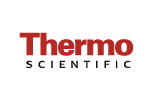September 2017 - Triple LASS: the Power of Laser Ablation coupled to three ICP-MS instruments
Laser ablation split-stream (“LASS”) is a technique that allows for the simultaneous analyses of different geochemical systems in mineral samples using two or more mass spectrometers. LASS allows geochemical information to be determined from exactly the same ablation volume, avoiding the assumption that serial analyses of neighbouring sites are not affected by heterogeneity (chemical zonation). The Thermo Scientific Neptune Plus and Element XR have been successfully used in LASS, enabling the simultaneous analysis of Lu-Hf and Pb-U isotope systems in one single spot. Recently, this setup has been extended to include a third mass spectrometer (the Thermo Scientific iCAP RQ) for the analysis of REE, enabling to identify cases of sample heterogeneity.
In the technical note 30415 from Thermo Fisher Scientific, the authors evaluate this triple LASS technique for zircon petrochronology for a range of zircon standards (GJ-1, Mud Tank, Plesovice). For a single ablation spot on a zircon, simultaneous U-Pb and Hf isotope ratios as well as REE concentrations were collected.
Please visit the Knowledge Base to download this technical note and to find more interesting papers on LASS using the Thermo Scientific MC- and SC-ICP-MS mass spectrometers.

